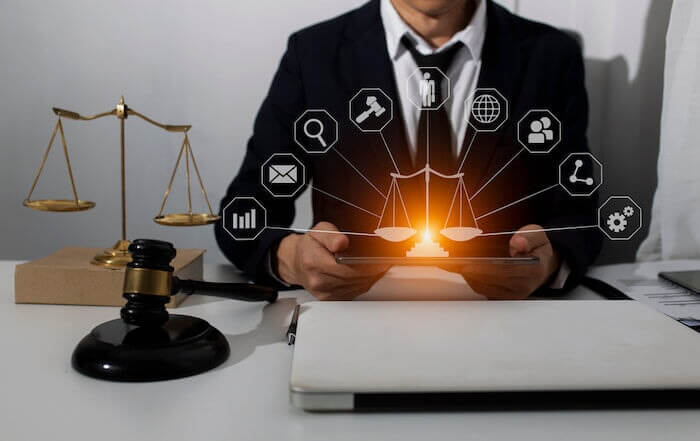
The Focus for Legal Tech: Lawyers or End-Client
With the growth in the global economy, we see an increase in the number of commercial transactions. The transactional increase requires several lawyers and legal professionals to minimise the risk. An efficient legal system is the backbone of a growing economy. It's not just the responsibility of the government but everyone, including lawyers, legal professionals, entrepreneurs, and the general public, to work towards economic development.
Legal technology is one step that aims to make everyone's life stress-free. When looking at economic development, one cannot ignore the challenges development brings.
Within the legal sector, we all knew about online knowledge resources. However, in the second decade of the 22nd century, the world saw a huge potential in this field leading to organisations investing in legal technologies to streamline their risk processes. The aim was to de-stress legal professionals and reduce the revenue cycle.
A decade ago, it was hard to predict and plan strategies to operate legal functions. With the advent of technological innovation, the efficiency and productivity of legal professionals have increased multi-fold.
A few areas where legal technology is important include breaking geographical boundaries, transparency, utilisation of resources, time management, reduction in cycle time, proliferation, and error reduction.
There are three key players to be helped from the implementation and use of legal technology: lawyers or legal professionals, including law firms, organisations and consumers or end-client.
This article will discuss who receives the maximum benefit by utilising technology to solve the day-to-day legal issue.
Lawyers or legal professionals
In 1996, Professor Richard Susskind predicted that lawyers and clients would communicate through email in the future. It was shocking when one read his book The Future of Law, but now email communication is the most prominent mode.
The primary objective of any technology is to simplify user problems. On the same goal, legal technologies have to provide – ease to legal professions, as easy as pie.
Some significant benefits include a reduction in hours spent reviewing documents, ease in the negotiation process, ease in court and regulatory filings, simplification of contract drafting and authoring, easy invoicing, and centralised repository management, among others.
Different professional resources realised the importance of technology and the need for knowledge enhancement. In his book "Tomorrow's Lawyers", Professor Richard Susskind suggests that lawyers should actively focus on learning and upskilling, including technical skills. "It will be as important in law as elsewhere for young aspiring professionals to be entirely familiar with the potential and the limitations of online service in their areas."
Consumer of legal services
Organisations opt for any technology to increase the revenue cycle. Forward-looking enterprises are always looking for better transparency in the entire revenue cycle to identify the critical hindrance points and resolve the issue at the earliest.
Like organisations, individuals do look for value for every penny spent. It can be rightly said that the most crucial aspect for any individual seeking legal advice is to get the best service at an affordable price.
Breaking barriers with legal technology
While legal technology helps bring in accuracy with efficiency, it allows lawyers to reduce the cost of services as they are not reinventing the wheel every time. Hence, if the technology is helping legal professionals and saving the time and effort spent on routine, mundane and client-specific activities, the benefits will be passed on to the clients.
In our February 2002 article titled Lawyers at the Intersection of Technology Adaptability and Business Acumen, we discussed legal professionals' critical impediments to tech adoption.
Legal technology tends to break the barriers of time, resources, expertise and access. The technology benefits everybody that participates in the legal system. The process will begin with the implementation and usage of legal technology to realise the benefits of legal technology.
Also read top viewed Ai Legal article: The Role of AI in Legal Research.





